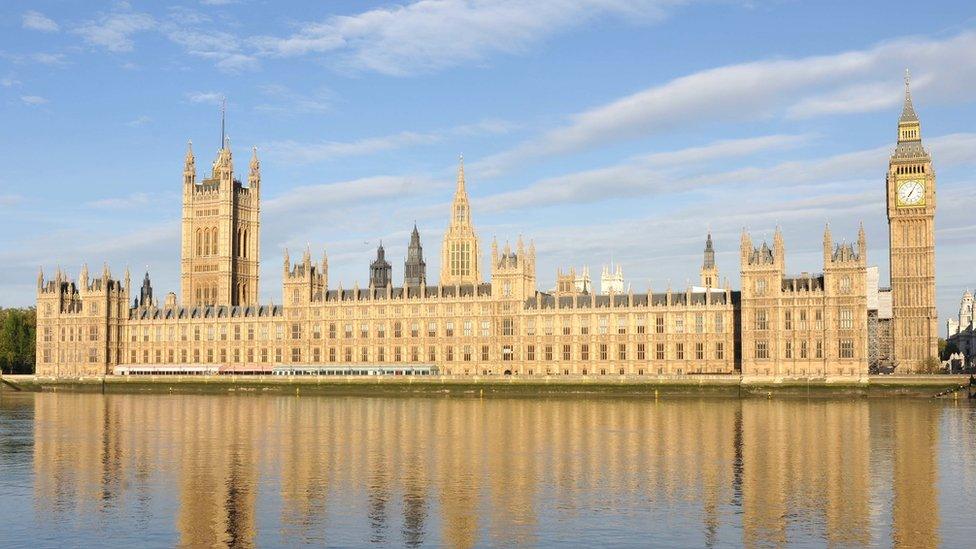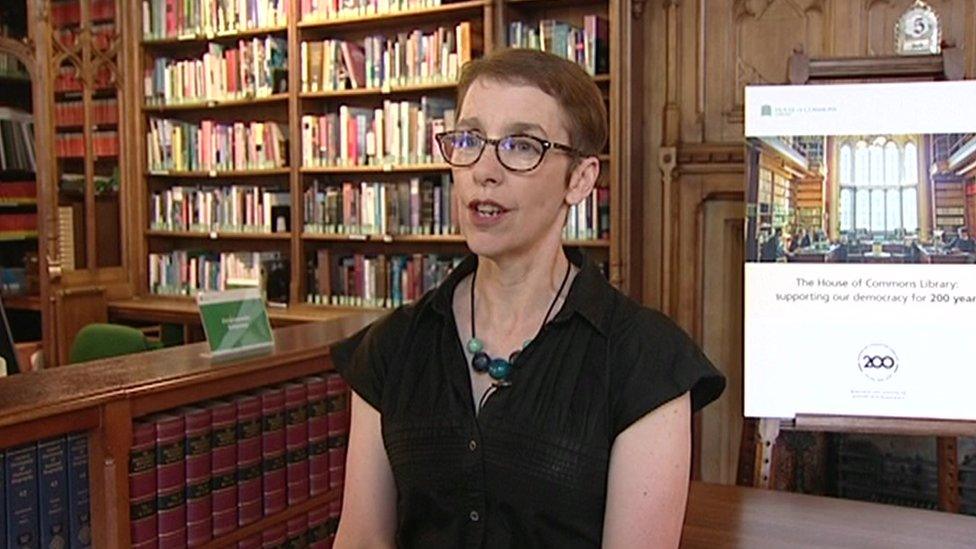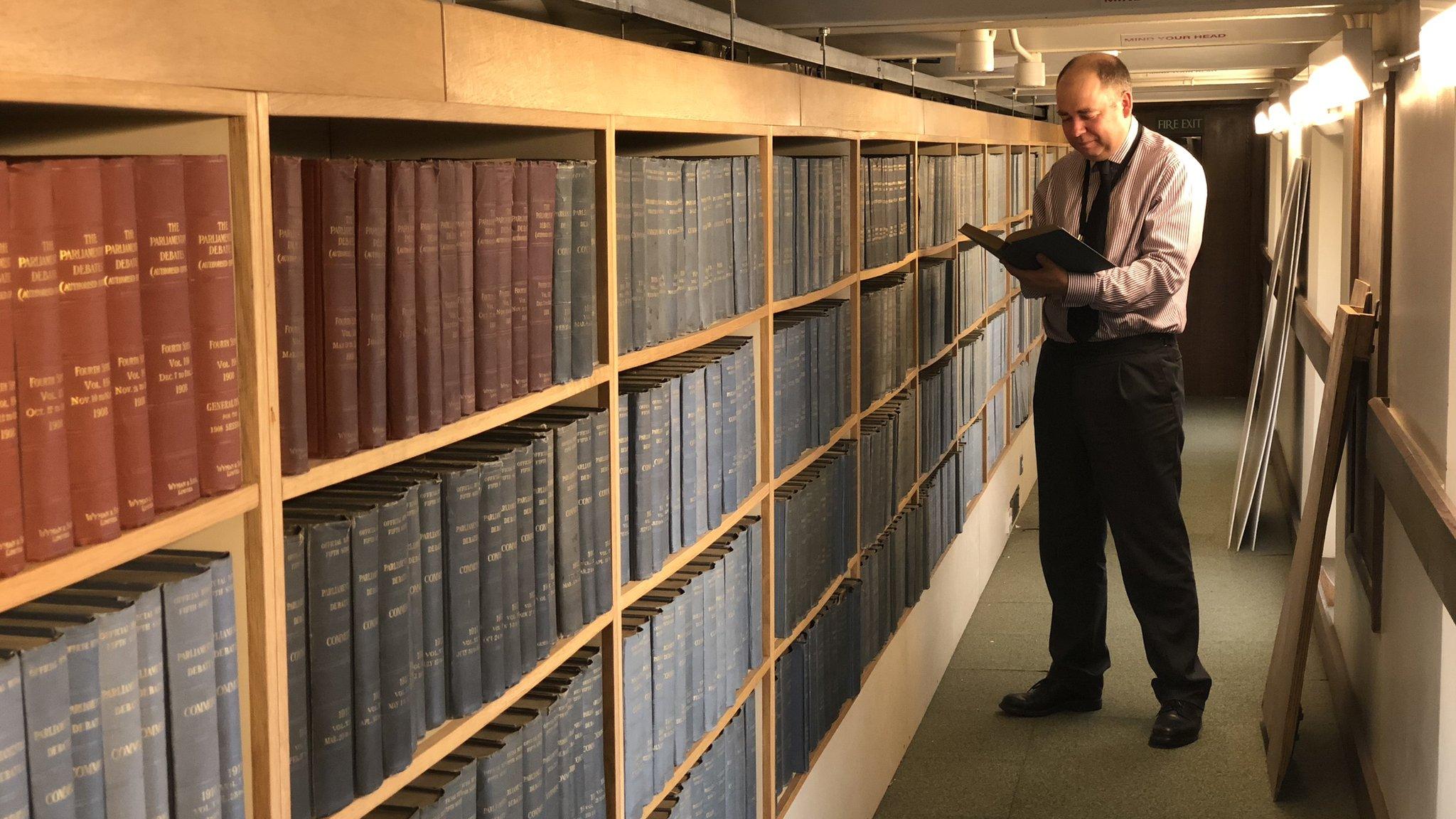Parliament: What are all these written questions?
- Published

With Parliament off for summer recess until September, MPs waiting for answers from the government may well get them this week, as ministerial departments attempt to clear their in-trays.
Behind the scenes, away from the cameras, MPs and peers submit hundreds of written questions to departments.
Less glamorous than their oral counterparts, which are heard in the Commons and Lords chambers, they nevertheless play an important part in getting information to MPs and holding the government to account.
Due to their flexibility - they can be on any subject - written questions often reveal a parliamentarian's personal interests and causes, or the issues most important to an MP's constituents.
They are also used by MPs to bring campaign issues into the public arena, as Labour's David Lammy did with the issue of deportations of the Windrush generation.

Three types of written questions
Ordinary questions: These can be on any topic and do not have to be answered by a specific date, although by convention the MP can expect a response within seven days.
Named day questions: The MP can specify the date by which they would like a response, but they must give the minister two days' notice of the question being tabled. An MP cannot table more than five named day questions per day.
Oral questions not heard during question time: Questions tabled but not answered during a ministerial question time are sent to the relevant department as named day questions.

Written questions also come in useful for journalists.
"I think written questions are handy for lesser-spotted stories, nuggets that are teased out reluctantly from ministers," says Esther Webber, a reporter for the Times' Red Box and a former BBC journalist.
In 2017, an answer to a written question led her to discover that the government was still paying the legal costs of a lost court case. It had unsuccessfully appealed against a decision that Parliament had to be consulted before Article 50 could be triggered.
Labour MP Gloria de Piero had tabled a written question asking when the cost of the appeal would be published.
Brexit Minister Robin Walker replied: "The department has not been billed for all costs related to the case."
And then there are the quirky, weird and wonderful, such as when Lord West of Spithead asked the government about the "suitability" of naming a new royal research ship Boaty McBoatface, as voted for by the public.
"The final decision on the ship's name will be taken by government," came the reply.
- Published11 July 2018

- Published6 July 2018
